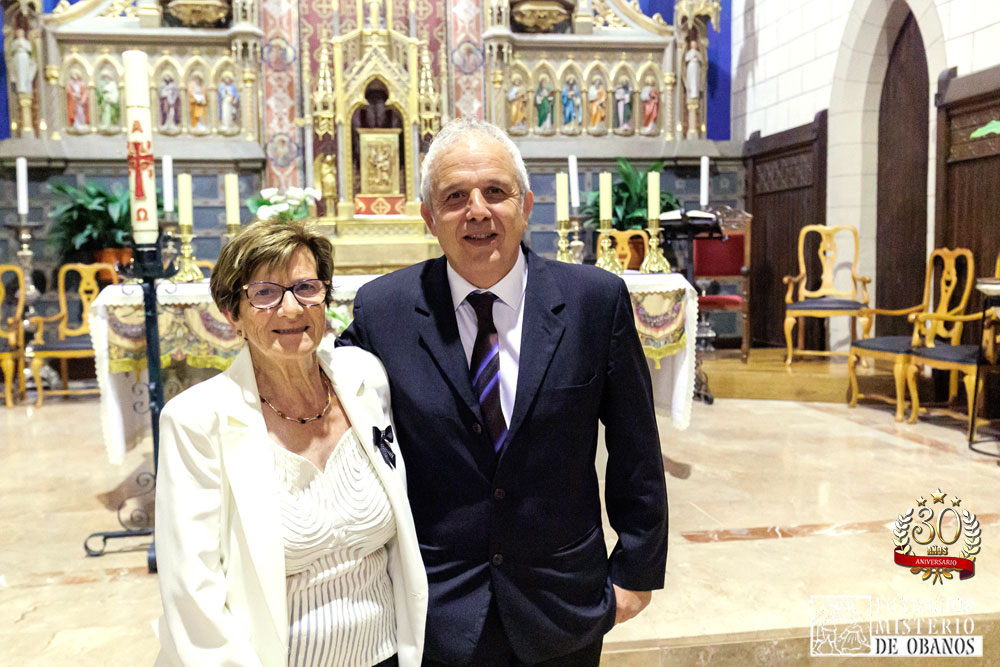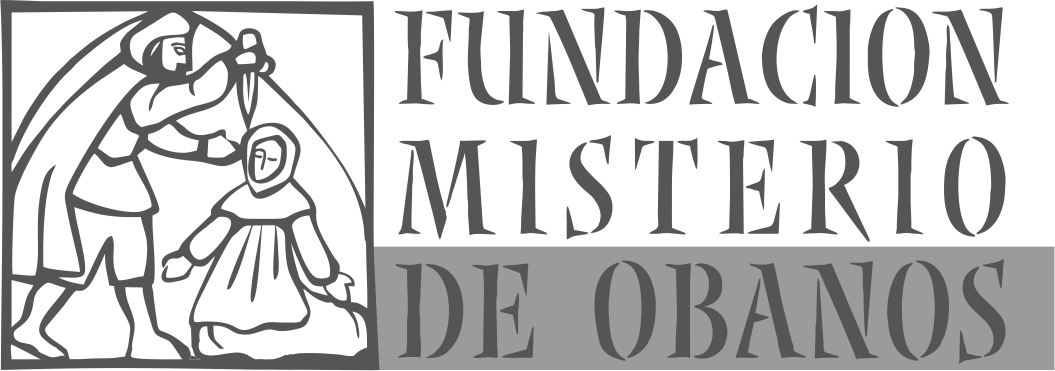The fourth edition of the Choral Competition was a great success and the three participating choirs performed at a high musical level. The audience chose the performance of Alboka Abesbatza, from Lasarte-Oria, as their favorite.
There was recognition for the three participating groups. If the Madrid choir Salix Cantor won first prize from the jury, the choir La Asunción from Pamplona won the audience award and its director was the best rated by the jury. But, as the people in charge of conducting the musical event pointed out, the main winner was the audience attending the fourth edition of the Arnotegui competition, who were able to enjoy a first-class musical performance in the town of Obanos.
The event, organized by the Fundación Misterio de Obanos, wants to become “a benchmark for polyphonic choral music in Navarra and along the Way of St. James,” said Javier del Cura, director of the Misterio, who, before giving way to the participating choirs, reviewed the trajectory of this contest. Del Cura said that the entity aims to celebrate, in 2024, a cultural week around the Mystery of Obanos where other events related to this Obanese tradition will take place.
Saturday’s event counted with the participation of the tenor Eduardo Zubicoa and the soprano Raquel Fernández, accompanied on the piano by Daniel Gutiérrez. As for the jury in charge of distributing the prizes (1,200, 700 and 400 euros respectively) among the participating groups, it was composed of the famous composers Teresa Catalán Sánchez and Tomás Marco, as well as the recently appointed director of the Religious Music Week of Cuenca, Andoni Sierra. They also decided who would receive the award for best conductor, which went to the conductor of the choir La Asunción de Pamplona, Beatriz Aguirre. This award was one of the novelties introduced in the fourth edition of the contest and, as announced in the presentation by the director of the Pamplona Chamber Choir, David Gálvez, it was intended to value the work of the choir conductor in faithfully reproducing the spirit of medieval music.
The three participating choirs performed their own repertoire chosen from the songbook of the 14th to 16th centuries, as well as a compulsory piece, Stella Splendens, included in the “Libre Vermell de Montserrat”, from the 14th century, a composition performed in unison by the three choirs as a final touch to the contest.
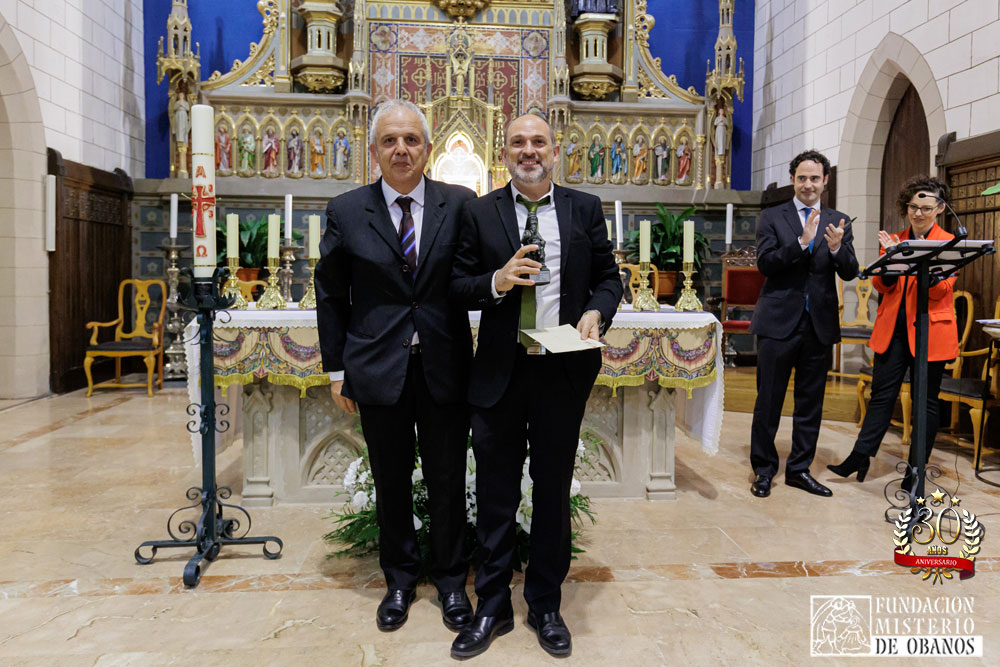
First prize of the jury for the Madrid choir Salix Cantor.
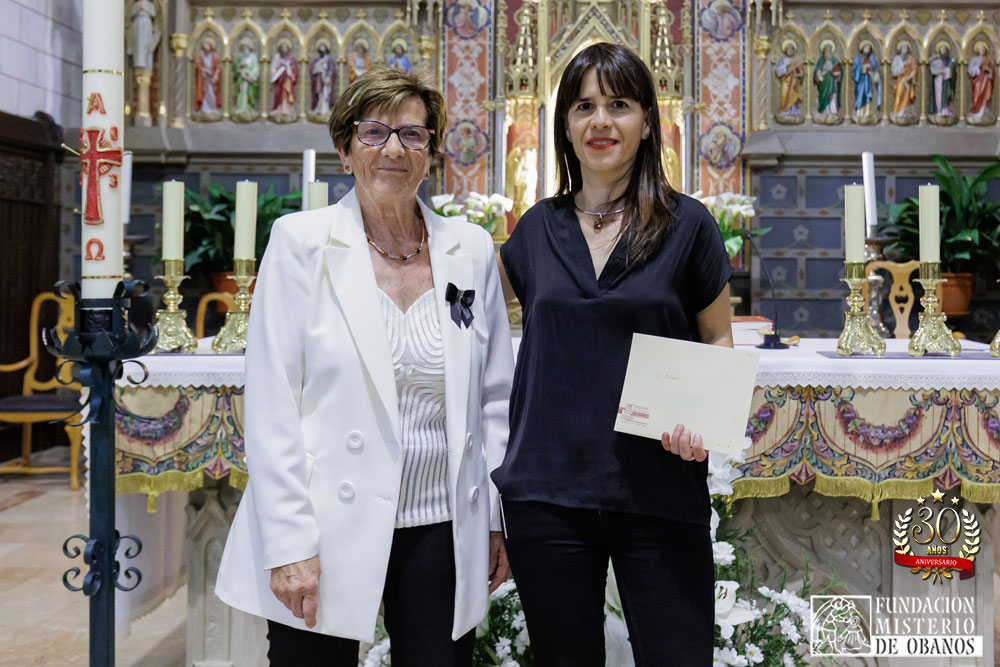
Second prize to the chorale from Lasarte-Oria Alboka Abesbatza
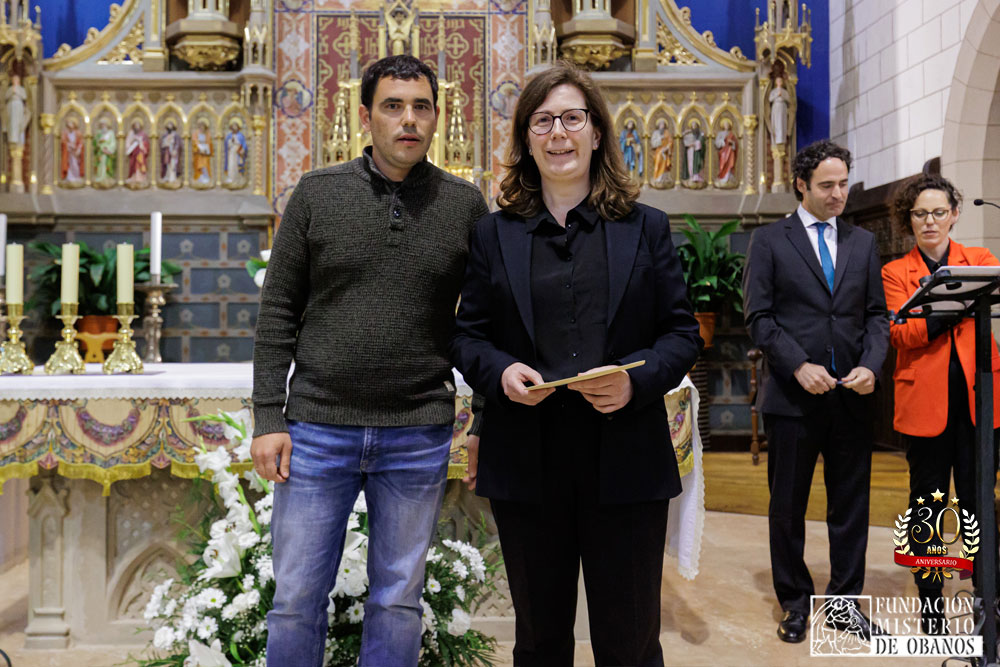
Third prize to the choir La Asunción de Pamplona.
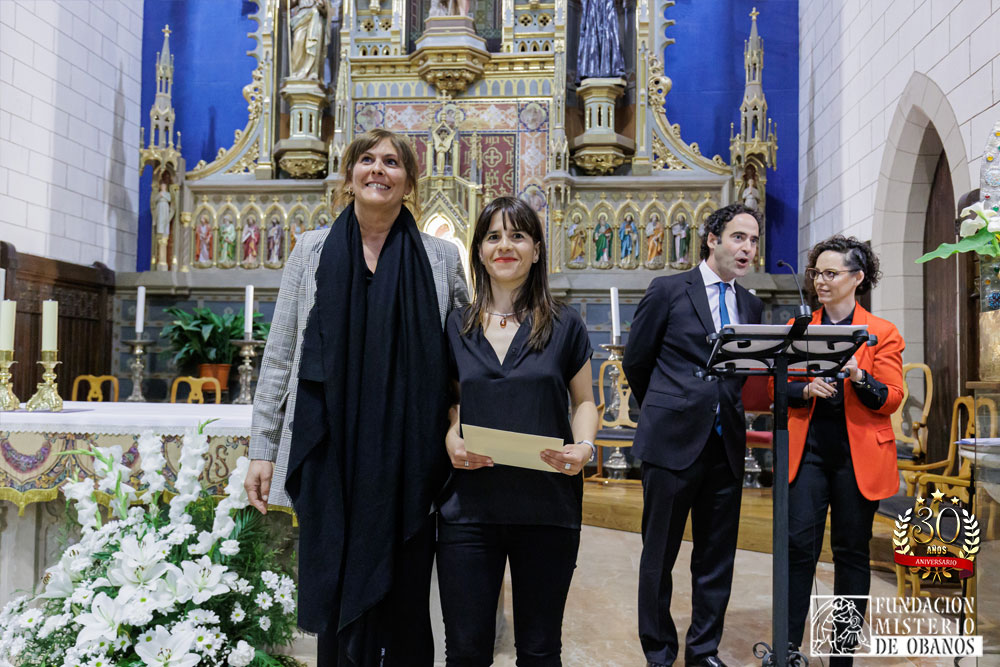
Audience Award to the choir La Asunción de Pamplona
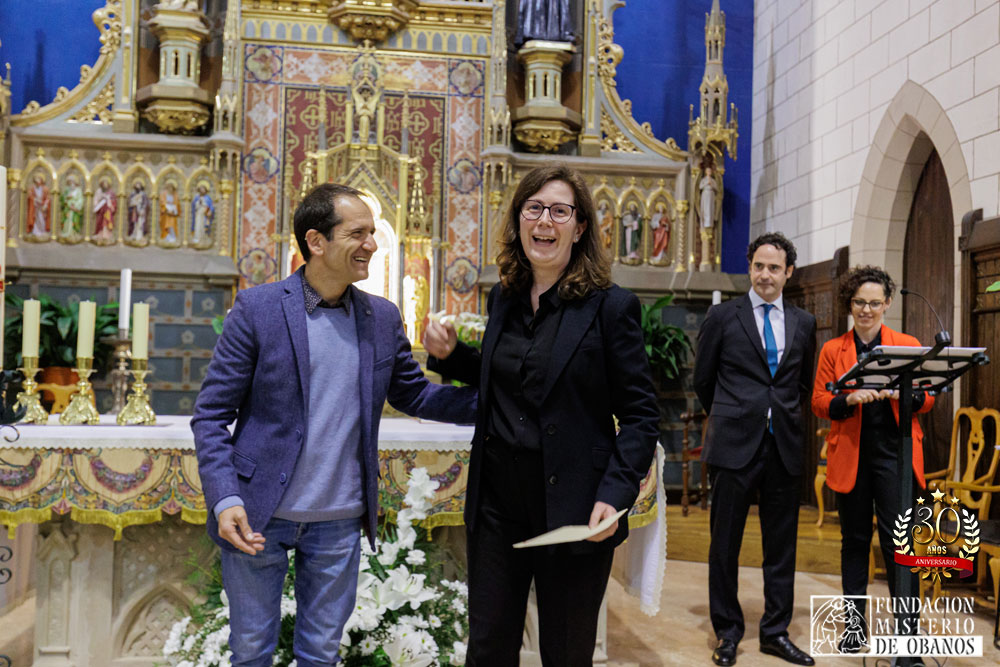
Jury Prize to the conductor of the La Asunción Choir of Pamplona, Beatriz Aguirre.
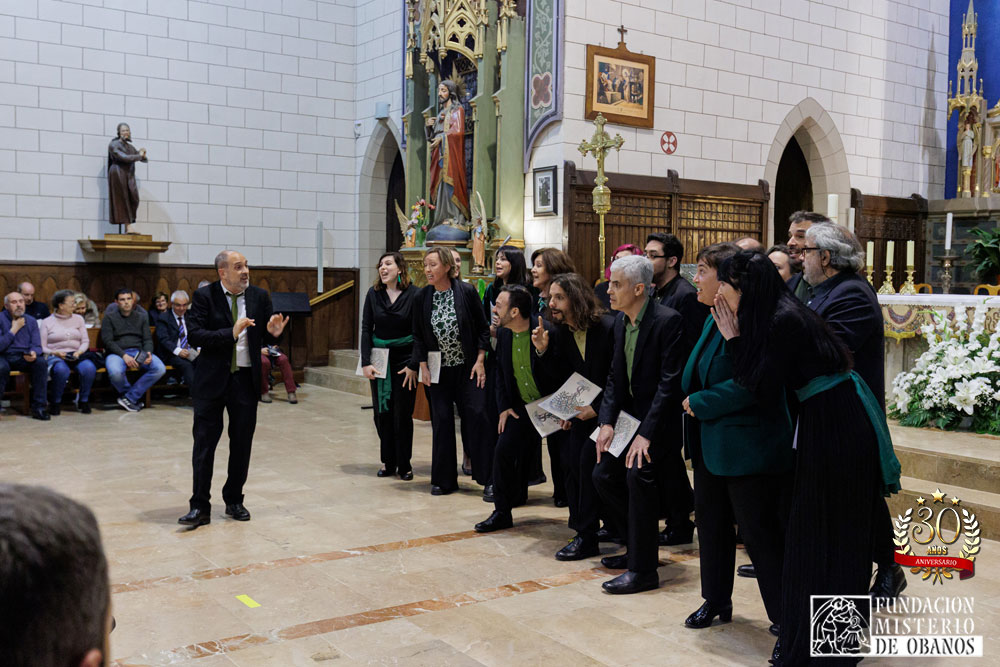
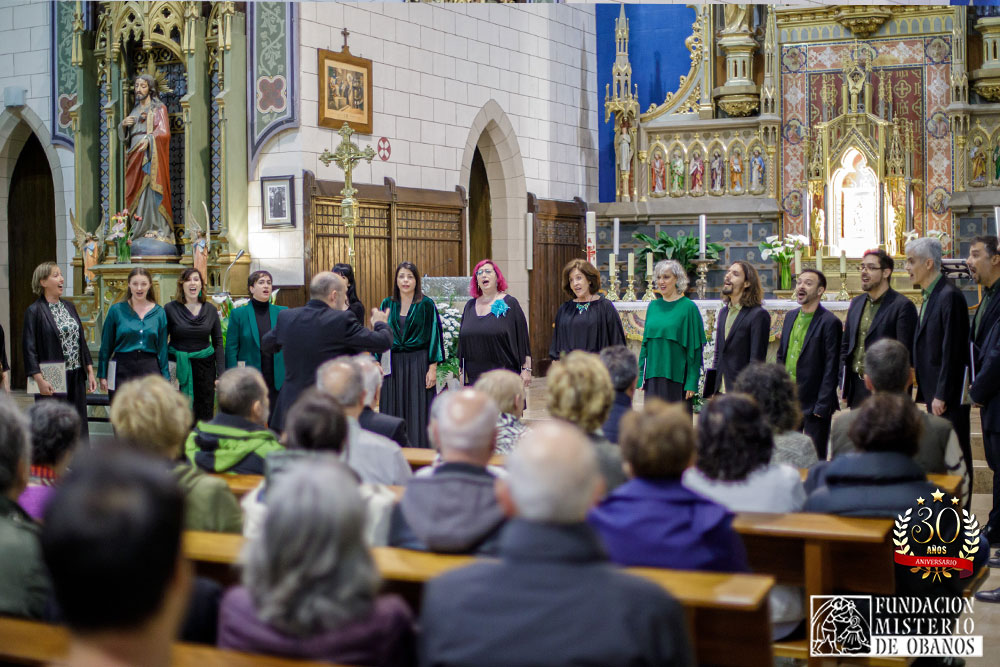
Performance by the Salix Cantor choir
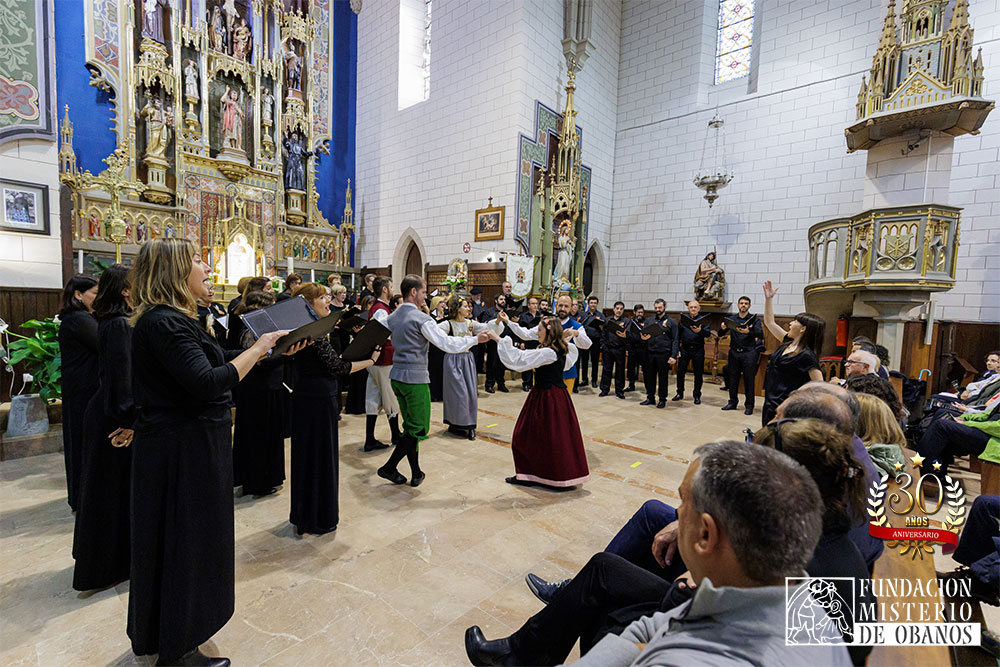
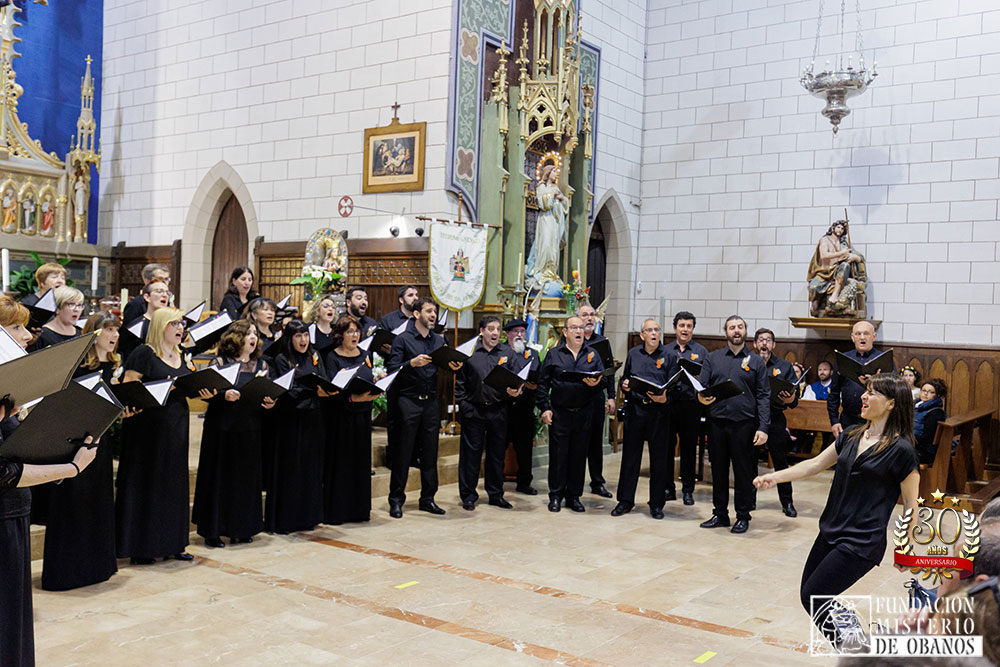
Performance by Alboka Abesbatza, from Lasarte-Oria.
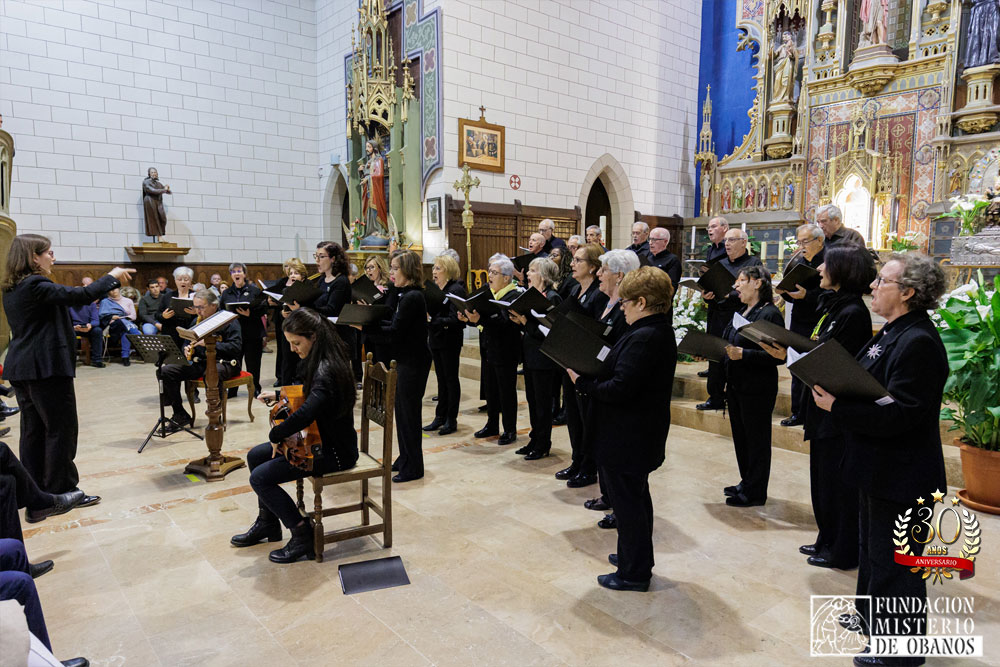
Performance of the Choir La Asunción of Pamplona.
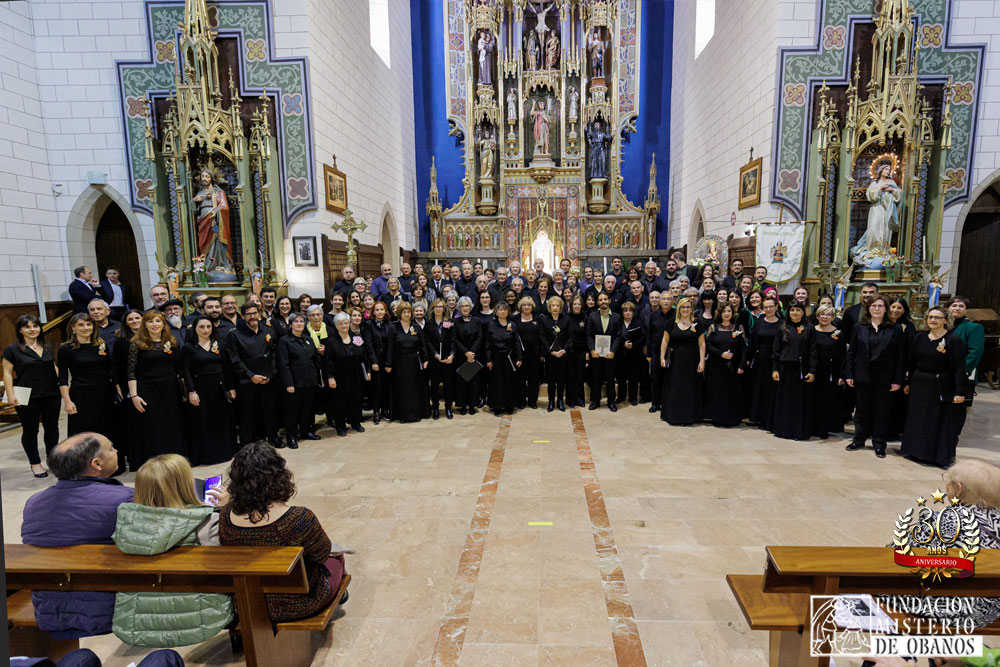
Photo of all participants together.
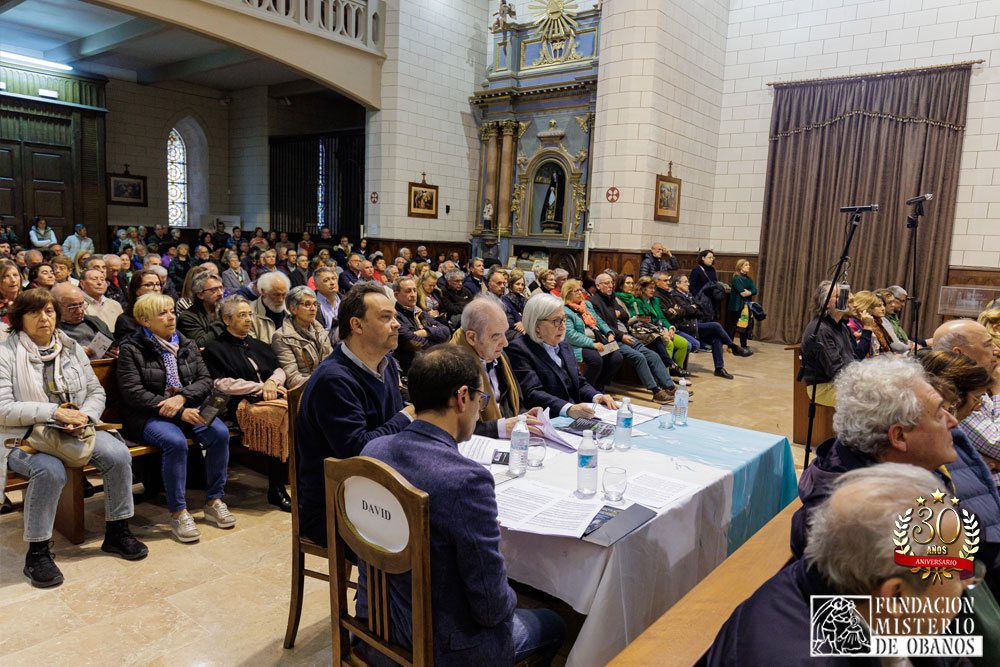
As for the jury in charge of distributing the prizes (1,200, 700 and 400 euros respectively) among the participating groups, it was composed of the famous composers Teresa Catalán Sánchez and Tomás Marco, as well as the recently appointed director of the Religious Music Week of Cuenca, Andoni Sierra.
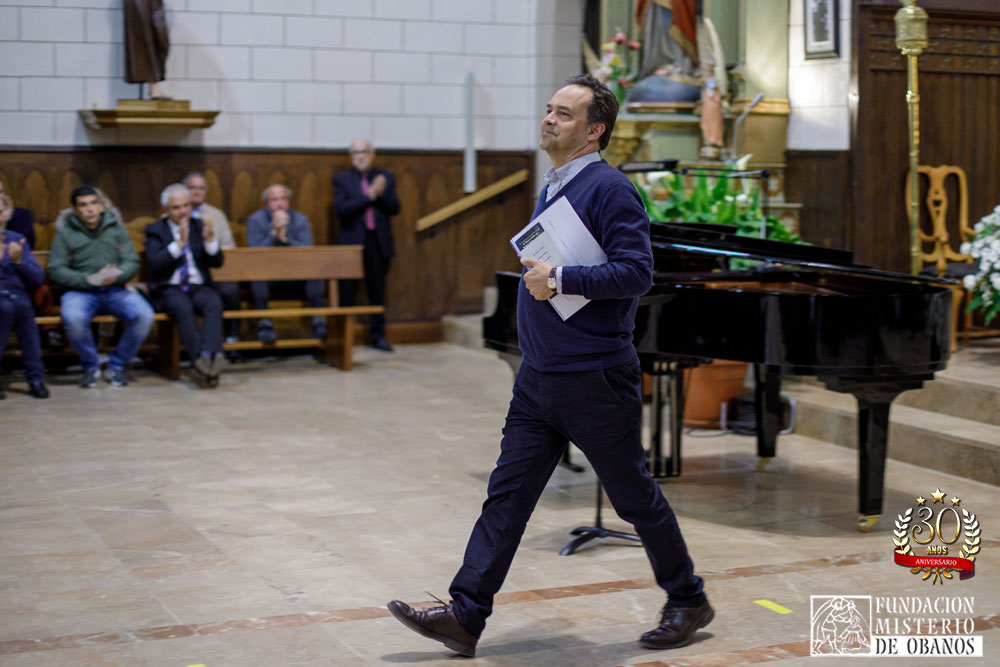
Andoni Sierra

David Gálvez
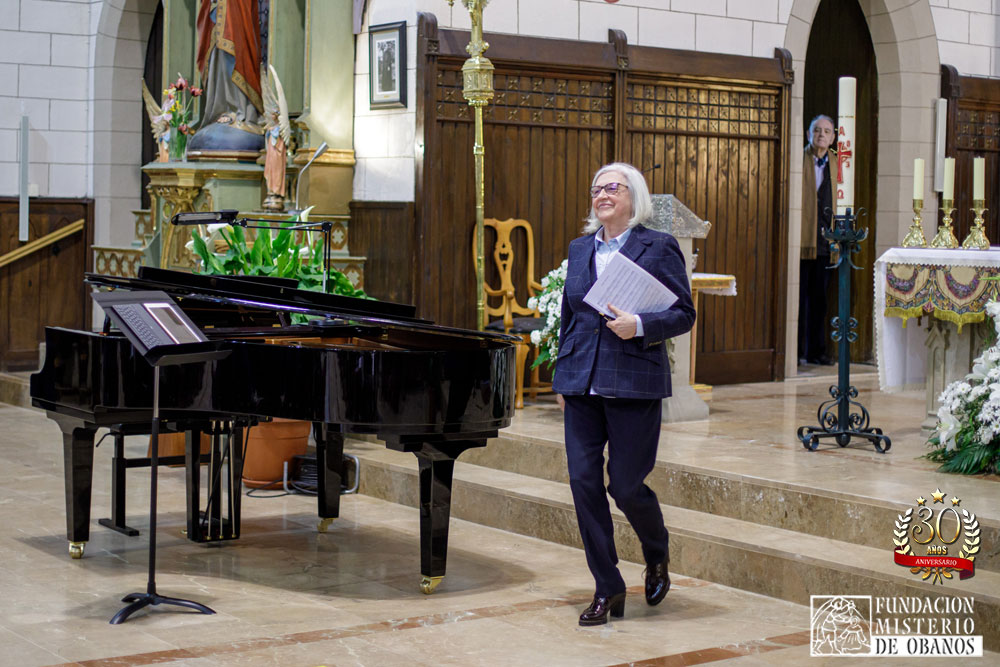
Teresa Catalán Sánchez
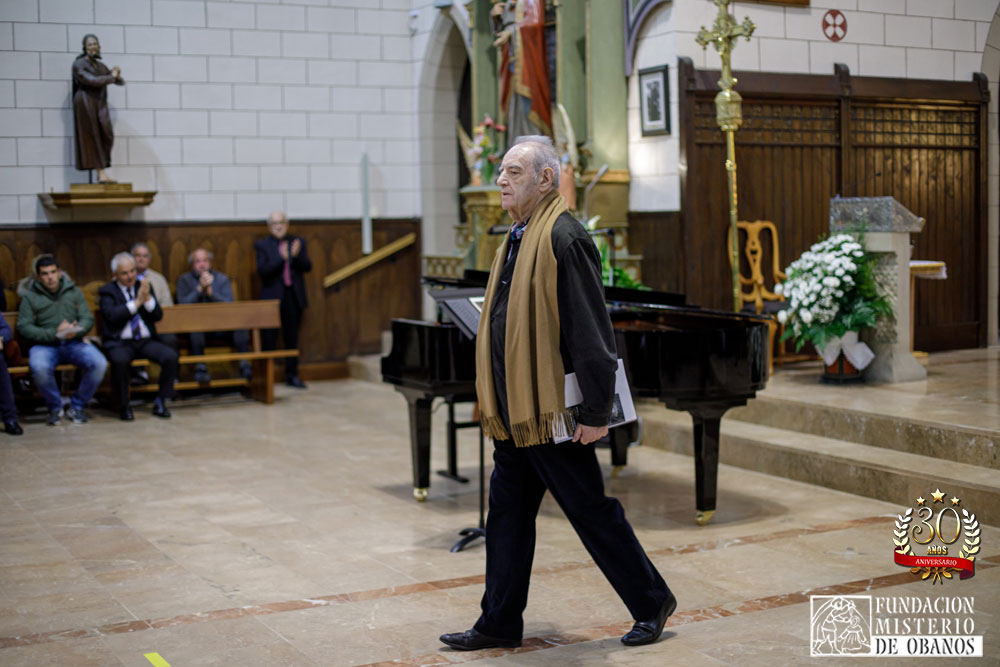
Tomás Marco
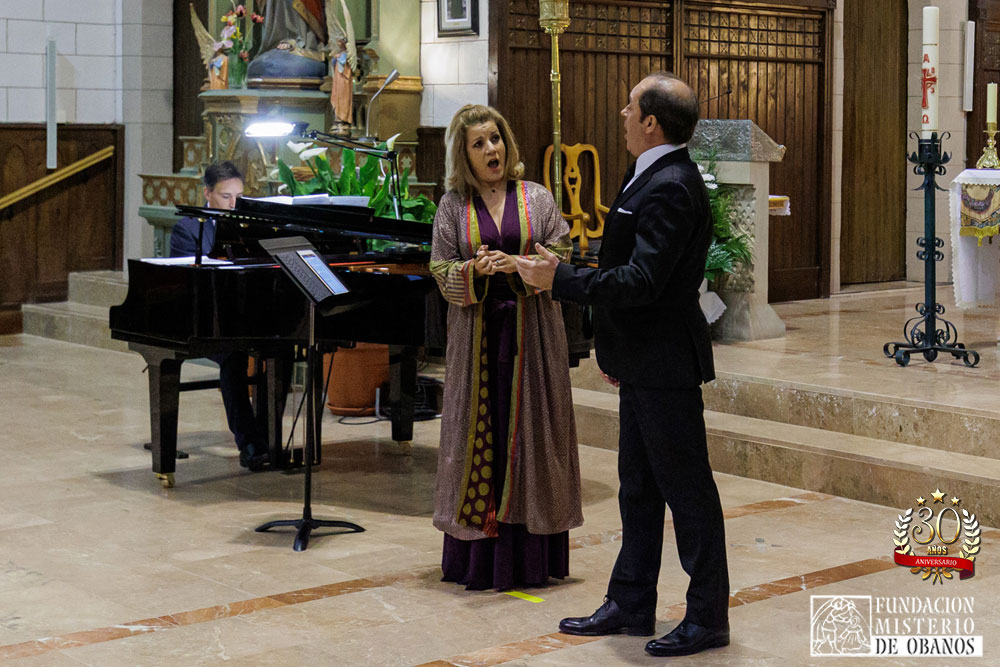
Tenor Eduardo Zubicoa and soprano Raquel Fernández, accompanied on piano by Daniel Gutiérrez.
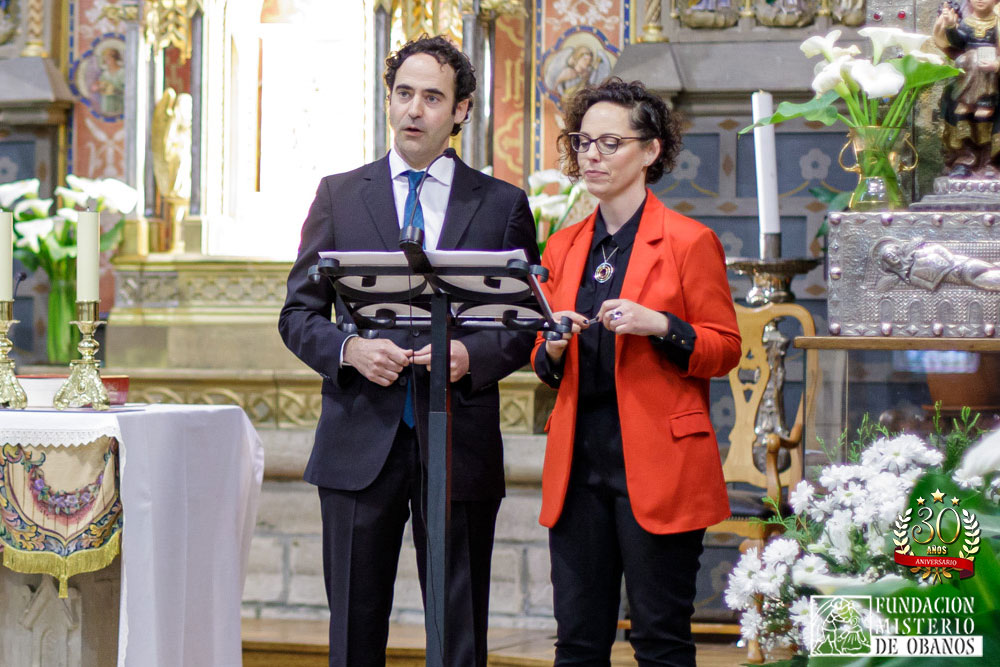
Event presenters
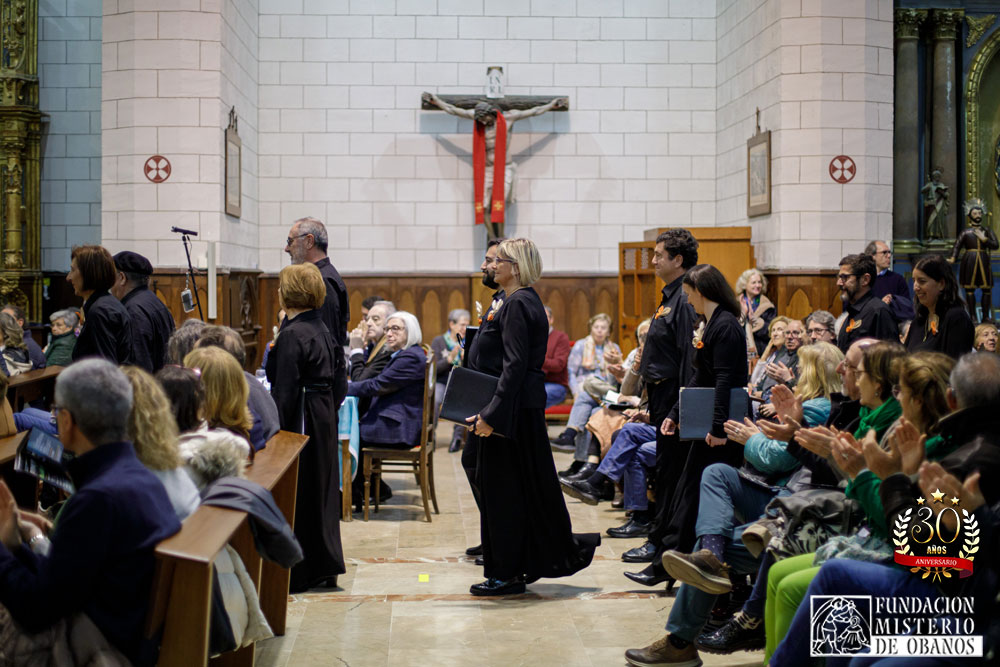
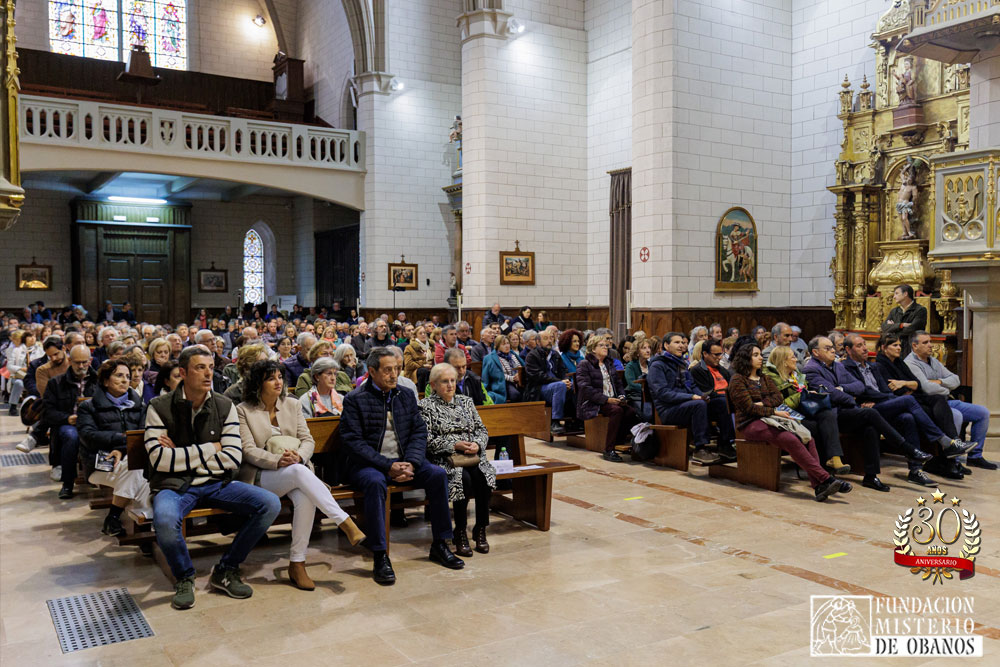
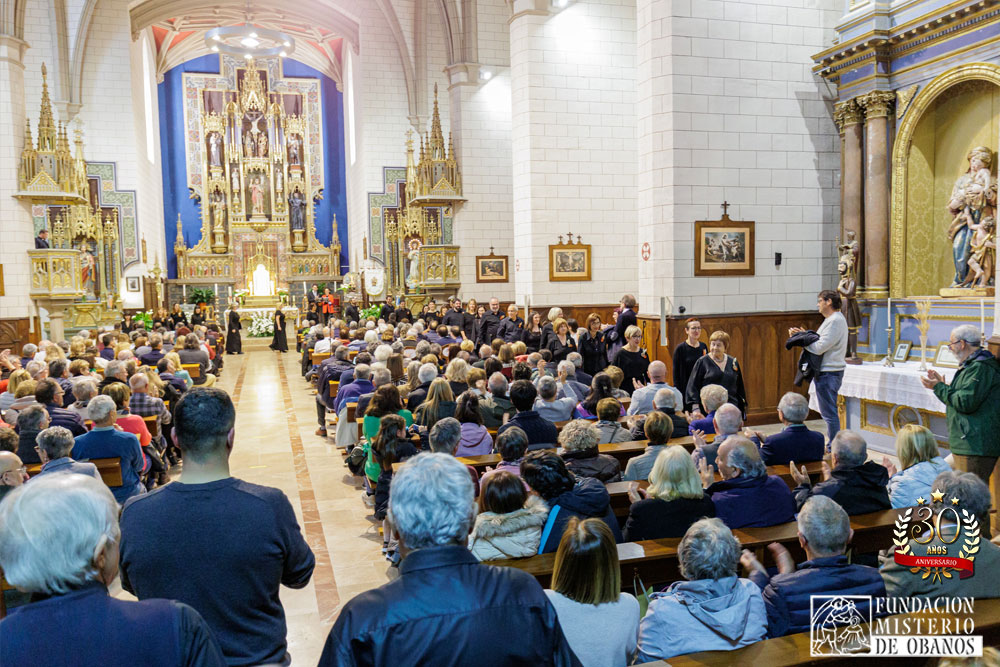
Atmosphere at the event
